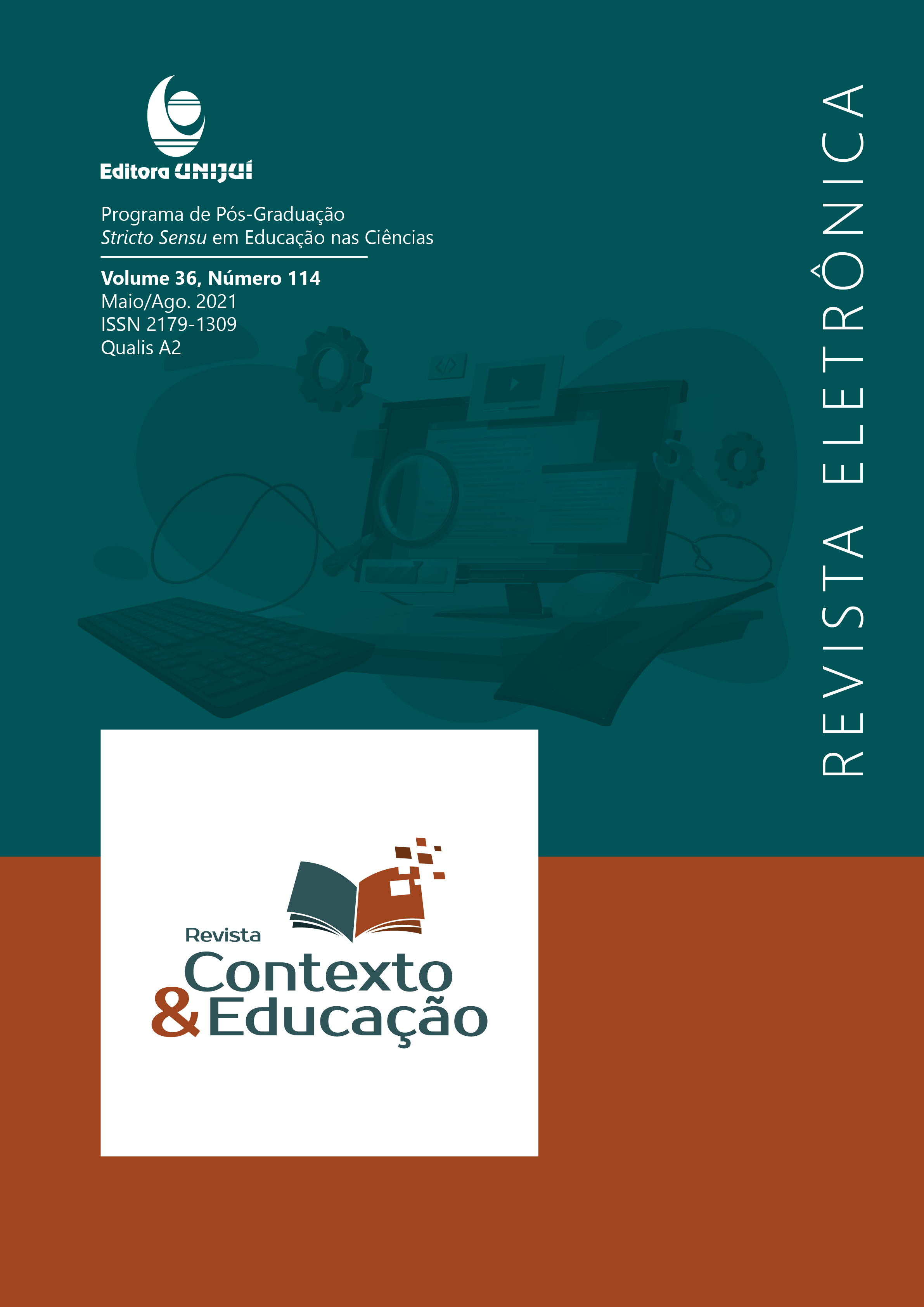PERSPECTIVA DE ALUNOS DO ENSINO SUPERIOR SOBRE BRINQUEDOTECAS EM AMBIENTES VIRTUAIS DE APRENDIZAGEM
PERSPECTIVE OF HIGHER EDUCATION STUDENTS ON PLAY ROOMS WITHIN VIRTUAL LEARNING ENVIRONMENTS
DOI:
https://doi.org/10.21527/2179-1309.2021.114.267-279Keywords:
Brinquedoteca virtual. Ambientes de aprendizagem. Ensino Superior.Abstract
Learning virtual environments became classrooms shared by the current generation. Within that context, virtual play rooms become an attractive locus due to its articulation proposal linking recreation with technology, being explored both by children as well as adults in undergraduate courses. Undergraduate courses on Pedagogy and Design are the ones which most make use of such classrooms, but have students of different fields of knowledge ever had access to them and experience within virtual play rooms? This paper analyzed both access and experience within virtual play rooms by students of different Higher Education courses and recorded their perceptions on the inclusion of that tool in their learning processes. Being a qualitative research, it comprised 1,441 participating students who responded to an online questionnaire. The results showed that most of the students had not had any access to virtual play rooms and those who had some previous experience in it found that such an experience was positive, including sharing feelings such as social digital inclusion, sharing real and virtual interactions , trying to achieve learning playfully, etc. One came to the conclusion that, from the students’ perspective, play rooms within virtual learning environments, due to the network learning potential provided by them, must be presented within different courses as an innovating teaching and learning proposal for both college students and children.
Downloads
Published
How to Cite
Issue
Section
License
By publishing in Revista Contexto & Educação, authors agree to the following terms:
All works are published under the Creative Commons Attribution 4.0 International License (CC BY 4.0), which allows:
Sharing — to copy and redistribute the material in any medium or format;
Adaptation — to remix, transform, and build upon the material for any purpose, even commercially.
These permissions are irrevocable, provided that the following terms are respected:
Attribution — authors must be properly credited, a link to the license must be provided, and any changes made must be indicated.
No additional restrictions — no legal or technological measures may be applied that legally restrict others from doing anything the license permits.
Notices:
The license does not apply to elements that are in the public domain or covered by legal exceptions.
The license does not grant all necessary rights for specific uses (e.g., image rights, privacy, or moral rights).
The journal is not responsible for the opinions expressed in the articles, which are the sole responsibility of the authors. The Editor, with the support of the Editorial Board, reserves the right to suggest or request modifications when necessary.
Only original scientific articles presenting research results of interest that have not been previously published or simultaneously submitted to another journal with the same purpose will be accepted.
Mentions of trademarks or specific products are intended solely for identification purposes and do not imply any promotional relationship by the authors or the journal.
License Agreement (for articles published from October 2025): Authors retain the copyright to their article and grant Revista Contexto & Educação the right of first publication.


